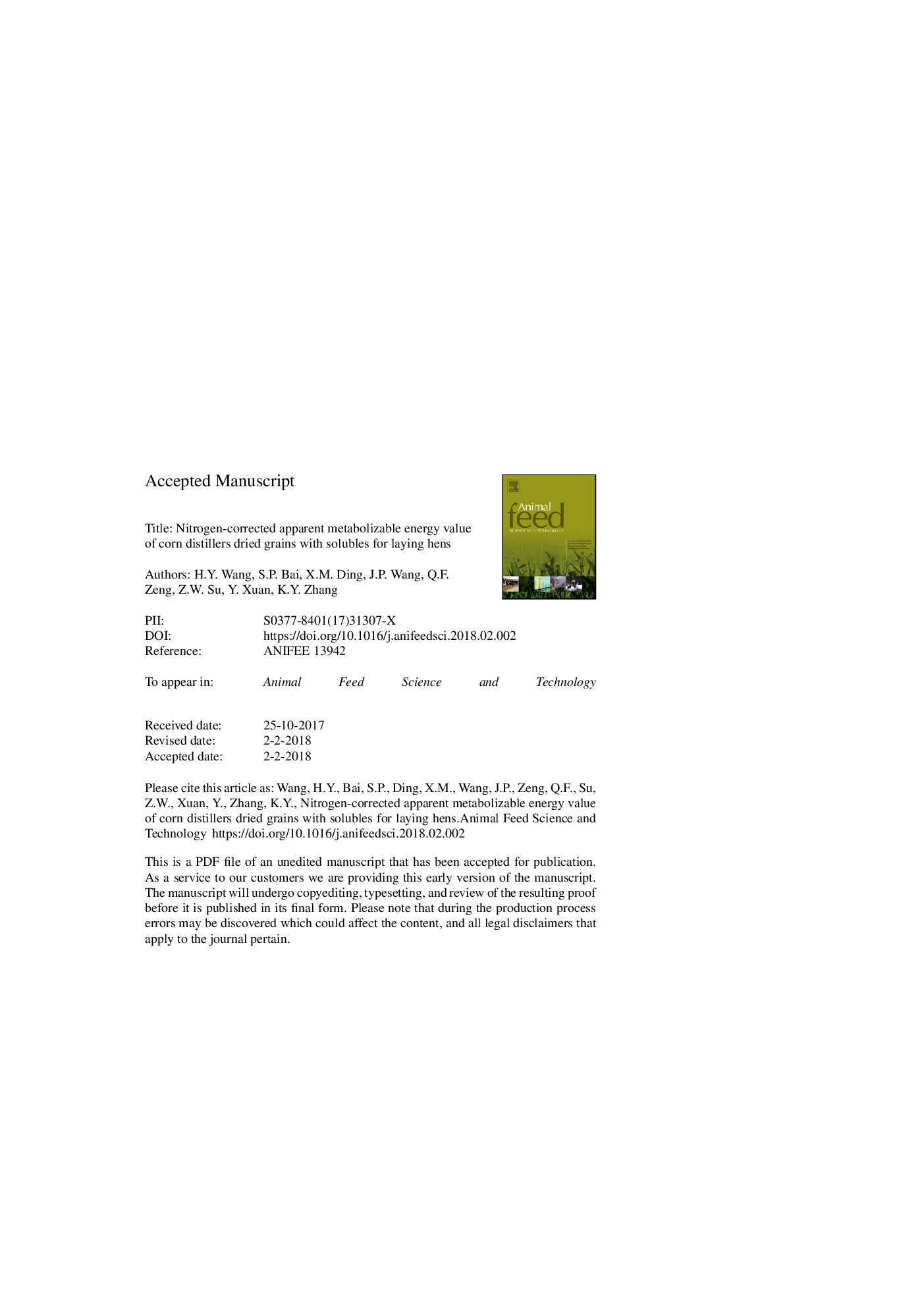| Article ID | Journal | Published Year | Pages | File Type |
|---|---|---|---|---|
| 8490997 | Animal Feed Science and Technology | 2018 | 21 Pages |
Abstract
Experimental diets were fed in the 7-day adaptation period, followed by the 4-day total excreta collection period. Gross energy (GE) and crude protein (CP) of the experimental diets and excreta were determined to calculate AMEn for each DDGS sample. On the DM basis, AMEn of the 10 corn DDGS samples ranged from 729 to 2535â¯kcal/kg. Analyses were conducted to determine the GE, CP, EE, DM, crude fiber, neutral detergent fiber (NDF), acid detergent fiber (ADF), and ash content of the DDGS samples. Stepwise regression resulted in the following best-fit equation for AMEn (DM basis) based on the coefficient of determination, SE, and the Mallows' statistic (Cp): AMEn, kcal/kgâ¯=â¯0.777â¯Ãâ¯GE (kcal/kg)â¯ââ¯5.39â¯Ãâ¯NDF (g/kg) (R2â¯=â¯0.99; SEâ¯=â¯172;â¯Cpâ¯=â¯â3.37). These results suggested that the composition of corn DDGS may be used to predict AMEn in laying hens.
Keywords
Related Topics
Life Sciences
Agricultural and Biological Sciences
Animal Science and Zoology
Authors
H.Y. Wang, S.P. Bai, X.M. Ding, J.P. Wang, Q.F. Zeng, Z.W. Su, Y. Xuan, K.Y. Zhang,
